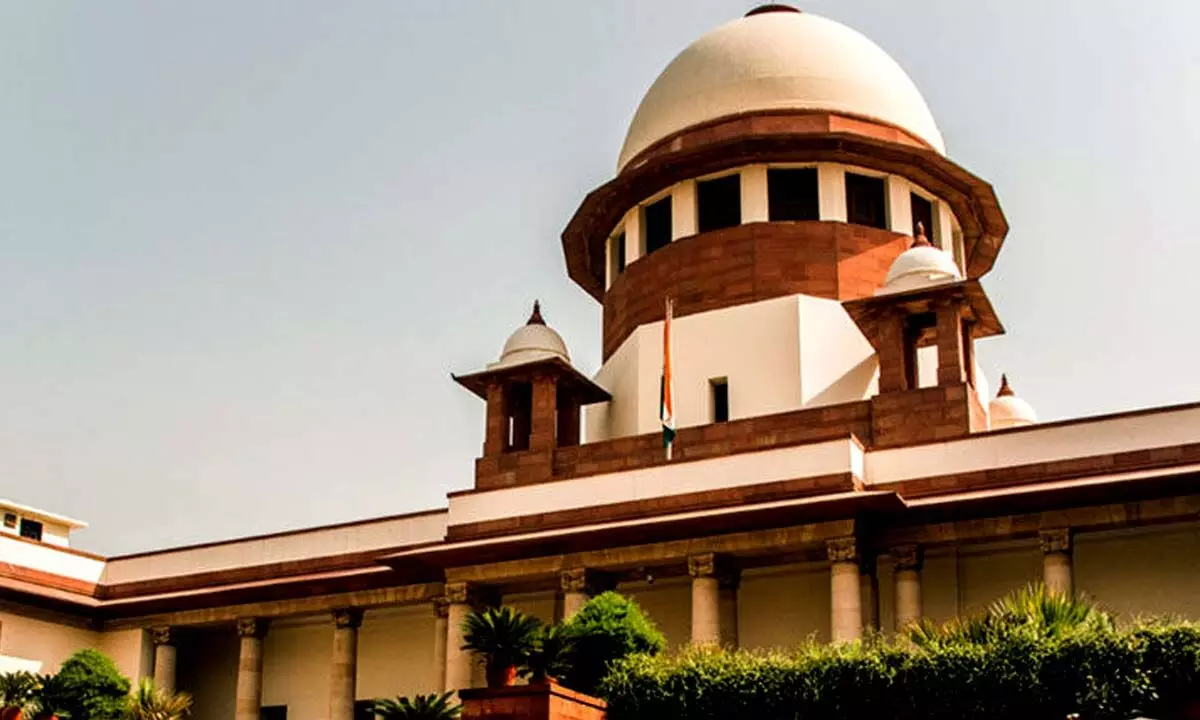Live
- Term ‘Secular’ misused for vote bank politics
- OTT round-up (June 30 – July 6): Thrillers, dramas, and fantasies to drop this week
- Promising start fizzles into predictable crime drama
- Technical charts signal bullish bias
- Plea to sort out lapses in implementation of RTE admissions
- Global trends to drive near-term market mood
- AI set to transform retirement planning
- Options data holds sideways trading
- World Asteroid Day: Raising awareness about asteroid
- Exciting careers in statistics and data science

Supreme Court of India
The Supreme Court has upheld an order passed by the apex court registry in August 2024 refusing to admit a lawyer’s application seeking direction to SEBI to submit its conclusive probe report into the Adani-Hindenburg controversy.
New Delhi: The Supreme Court has upheld an order passed by the apex court registry in August 2024 refusing to admit a lawyer’s application seeking direction to SEBI to submit its conclusive probe report into the Adani-Hindenburg controversy.
Advocate Vishal Tiwari had moved an appeal against the order passed by the Registrar on August 5 last year.
Earlier on July 15, 2024, the top court had dismissed a review petition filed against its earlier verdict refusing to form any SIT or group of experts to conduct an investigation. After perusing the review petition, a bench, headed by then CJI D.Y. Chandrachud said that there was no error apparent on the face of the record.
"No case for review under Order XLVII Rule 1 of the Supreme Court Rules 2013. The review petition is, therefore, dismissed. Pending applications, if any, stand disposed of," added the Bench, also comprising Justices J.B. Pardiwala and Manoj Misra.
In a detailed order passed on January 3, the Supreme Court had said that reports prepared by third-party organisations such as the Organized Crime and Corruption Reporting Project (OCCRP) and Hindenburg Research cannot be regarded as "conclusive proof".
It had said that the reliance placed by PIL litigants on newspaper articles or reports by third-party organisations "does not inspire confidence" to question the comprehensive investigation undertaken by the SEBI.
The apex court said that the facts in the case did not warrant a transfer of investigation from the SEBI and asked the market regulator to take its investigation to a logical conclusion in accordance with the law.
The SC had also cautioned against the use of unverified and unrelated material in the filing of public interest litigations (PILs), adding that pleas lacking adequate research and relying on unverified and unrelated material tend to be "counterproductive". However, it had asked the Central government to constructively consider the suggestions made by the expert panel headed by former apex court judge Justice A.M. Sapre.
"The Government of India and SEBI will take any further actions as are necessary to strengthen the regulatory framework to protect investors and ensure the orderly functioning of the securities market," it said. The apex court had asked SEBI and other investigative agencies of the Union government to probe into allegations of short selling resulting in loss of investors' value.
It had noted that the SEBI has already finalised 22 out of 24 investigations relating to allegations against the Adani group of companies and in relation to the remaining two cases, the market regulator has sought information from foreign agencies and entities and will determine future course of action based on receipt of such information.
However, the Supreme Court had said that these pending investigations should be completed “expeditiously within a period of three months”.

© 2025 Hyderabad Media House Limited/The Hans India. All rights reserved. Powered by hocalwire.com






